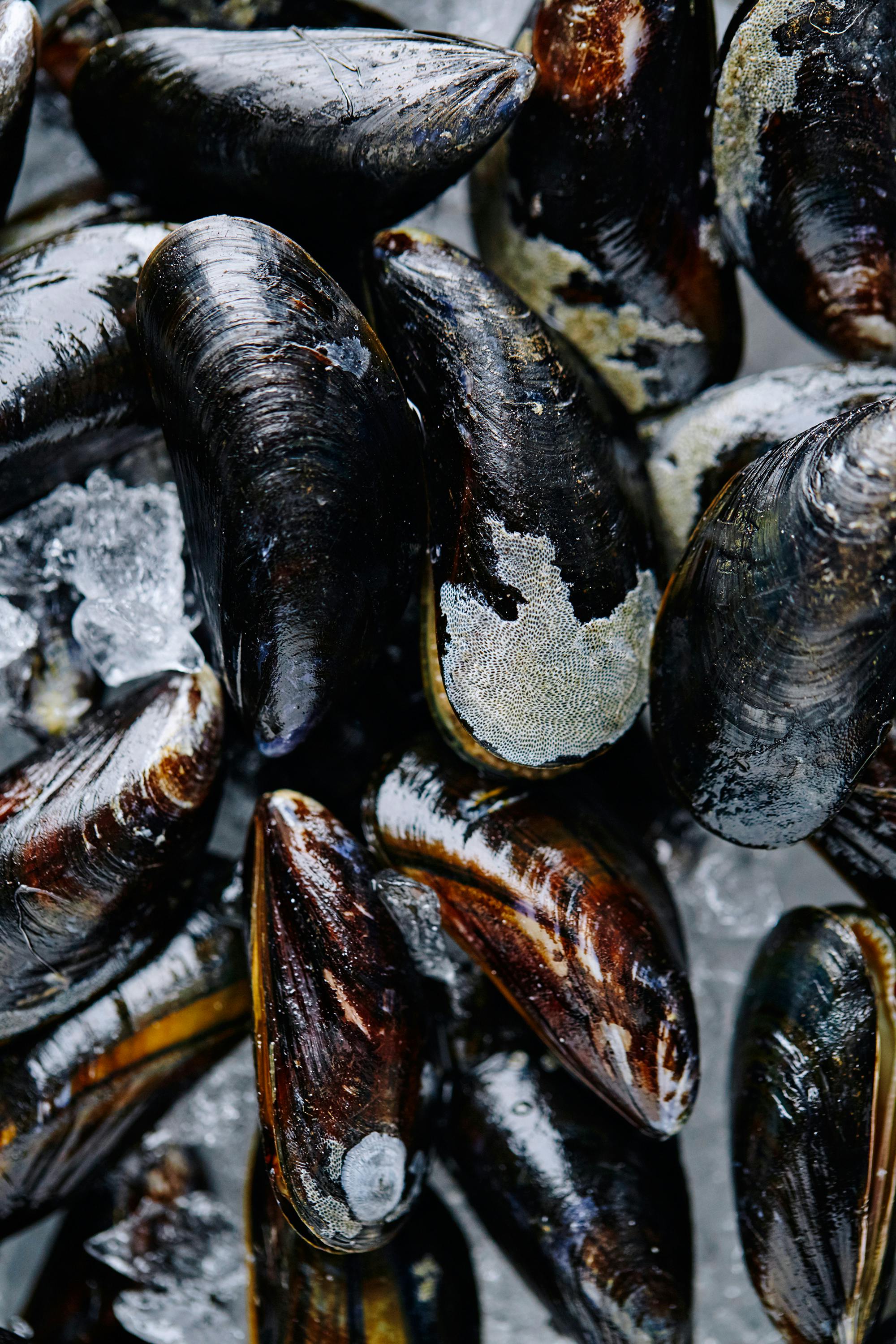Practical Guide to Couscous Nutrition Facts for 2025
Couscous is a staple food in many cultures, especially in North Africa and the Mediterranean region. As we move into 2025, understanding the couscous nutrition will be even more essential for health-conscious individuals and families. This grain, made from semolina wheat, offers a variety of health benefits, along with an impressive nutritional profile that deserves attention.
In this guide, we will explore the benefits of couscous, its calorie count, and how it can fit into various diets. We'll also cover cooking methods, serving suggestions, and comparisons with other grains, such as rice and quinoa. By the end of this article, you will have a comprehensive understanding of couscous nutrition and how to incorporate this versatile ingredient into your meals effectively.
Key takeaways include the importance of serving sizes, protein content, carbohydrates, fiber, vitamins, and minerals found in couscous. Additionally, you will learn about gluten-free options and recipes to create delicious couscous dishes at home.
Understanding Couscous Nutrition and Composition
Nutritional Value of Couscous
Your journey into the world of couscous begins with understanding its nutritional value. Couscous is primarily made from semolina, which is high in carbohydrates—making it an excellent energy source. On average, a one-cup serving (about 157 grams) of cooked couscous contains approximately 176 calories, providing a moderate balance of calories to give you energy throughout the day.
Couscous also provides essential vitamins and minerals, including B vitamins like folate and niacin, which support metabolic processes and overall health. Additionally, couscous is rich in dietary fiber, with about 2 grams per serving, which aids in digestion and helps maintain a healthy gut.
Couscous Protein and Fiber Content
When considering couscous protein content, it is important to note that while couscous is not a complete protein, it does contribute roughly 6 grams of protein per cooked serving. Pairing couscous with legumes or vegetables enhances its protein profile and offers a satisfying meal option for vegetarians and vegans.
The couscous fiber content can aid in weight management, especially when incorporated into meals regularly. Dietary fiber can help you feel full longer, making couscous a great option for those looking to manage their weight.
Couscous Calories Comparison
When comparing couscous with other grains such as rice or quinoa, couscous generally has a lower calorie count. For instance, a similar serving size of cooked white rice can contain about 205 calories, whereas quinoa has around 222 calories per serving. This makes couscous an appealing choice for many looking for a lighter grain alternative.
Health Benefits of Couscous
Boosting Energy and Performance
The energy source provided by couscous is particularly beneficial for athletes and active individuals. With its high carbohydrate content, couscous serves as a good pre-workout meal. Additionally, due to its low glycemic index, couscous can help to maintain balanced energy levels during exercise, preventing energy crashes.
Couscous for Weight Loss
Incorporating couscous into your diet can support weight loss efforts. The combination of its fiber content and lower calorie profile means it can be enjoyed as a filling side dish or main course without contributing significantly to your daily caloric intake. When combined with vegetables, it can create a satisfying meal that promotes fullness while offering essential nutrients.
Digestive Health Benefits
The fiber in couscous not only aids in weight management but also promotes digestive health. Regularly consuming fibrous foods improves bowel regularity and can help prevent constipation. For individuals seeking to improve their gut health, couscous is a simple addition that can easily be incorporated into various recipes like salads or as a base for proteins.

How to Prepare and Cook Couscous
Couscous Cooking Methods
Cooking couscous is quick and straightforward, typically taking just about 10 minutes. To prepare traditional couscous, you simply add boiling water or broth to the couscous, cover it, and let it steam until fluffy. For an extra flavor boost, consider adding spices or herbs to the cooking liquid.
Serving Size of Couscous
When planning meals, it's important to consider the serving size of couscous. A standard serving size is about 1 cup cooked, which provides roughly 176 calories. Adjusting serving sizes based on dietary needs is crucial—especially for those on specialized diets or striving for certain caloric goals.
Couscous Meal Prep Ideas
Couscous can be utilized in various meal prep concepts, from salads to grain bowls. Prepare couscous in advance and store it in the refrigerator for up to five days. This makes it an excellent option for quick weekday lunches or dinners, allowing you to mix and match flavors while ensuring nutritional balance in each meal.
Delicious Couscous Recipes and Serving Suggestions
Couscous with Vegetables
For a healthy and vibrant dish, try a couscous with vegetables recipe. Incorporate seasonal veggies like bell peppers, zucchini, and spinach for added nutrients. Toss in some olive oil, lemon juice, and your favorite herbs to enhance the flavor. This dish not only looks appealing but also packs a nutritional punch.
Mediterranean Couscous Salad
A Mediterranean couscous salad, featuring feta, olives, and chickpeas, combines diverse flavors and textures. This dish exemplifies how couscous can act as a base, allowing it to soak up the dressing's flavors while providing a nutritious and satisfying meal option.
Couscous Recipe for Beginners
For those new to cooking with couscous, a simple couscous recipe for beginners might involve just combining it with boiled water, salt, and a drizzle of olive oil. Let it steam for about 10 minutes, fluffing it with a fork afterward. This method yields a light and fluffy texture, perfect for various pairings.

Addressing Dietary Restrictions with Couscous
Gluten-Free Couscous Options
Understanding couscous dietary restrictions is critical for those with gluten intolerance or celiac disease. While traditional couscous is made from durum wheat, there are gluten-free alternatives made from corn or rice that offer similar flavors and textures. These options allow individuals with dietary restrictions to enjoy couscous without compromising their health.
Couscous for Vegetarians and Vegans
Couscous is a versatile grain that fits well within vegetarian and vegan diets. It serves as an excellent source of carbohydrates, and when paired with legumes, it provides necessary protein to replace meat in various recipes. Consider creating hearty dishes that incorporate couscous along with various plant-based ingredients for a complete meal.
Couscous Meal Ideas for Special Diets
No matter the dietary plan, there are various couscous meal ideas tailored for those with specific needs—be it low-carb, low-fat, or high-protein. Adjusting ingredients can help create meals that not only align with dietary restrictions but also maintain a delightful taste and presentation.
Frequently Asked Questions About Couscous
What are the main health benefits of couscous?
Couscous provides several health benefits, including being a good source of carbohydrates for energy, high in vitamins and minerals, and containing dietary fiber, which promotes digestion and satiety.
Is couscous a good option for weight loss?
Yes, couscous can support weight loss efforts due to its relatively low-calorie count and fiber content, helping keep you full longer while allowing for portion control.
Can couscous be part of a gluten-free diet?
While traditional couscous contains gluten, there are gluten-free options made from other grains available. Be sure to check labels to ensure you are choosing a safe product.
How long does cooked couscous last in the fridge?
Cooked couscous can be stored in the refrigerator for up to five days when kept in an airtight container, making it a convenient option for meal prep.
What are some quick couscous recipes?
Some quick recipes include couscous salad with cherry tomatoes, cucumbers, and feta or couscous stuffed bell peppers, both easy to prepare while offering delicious flavors.
Conclusion
Diving into the world of couscous offers a wealth of nutritional benefits and culinary possibilities. From its impressive couscous nutritional value to the flexibility it provides in meal prep and serving options, couscous proves to be a versatile staple for both individual and family meals. As dietary needs continue to evolve in 2025, couscous stands strong as a favored ingredient that not only enhances dishes but also supports a balanced and healthy diet.
